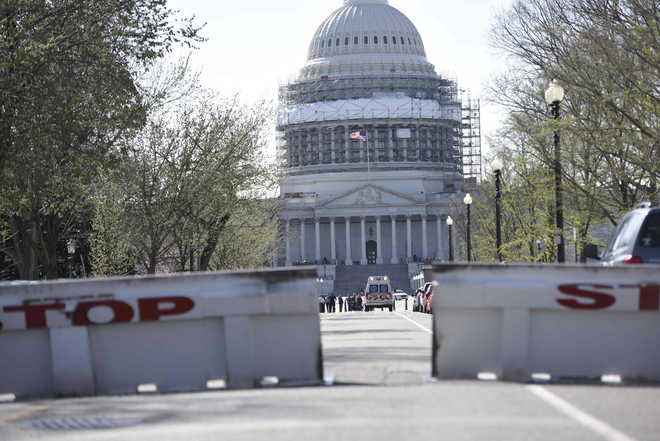
The Indian response was indeed coming, say US experts. AFP
Washington, September 30
The Indian surgical strike inside Pak Occupied Kashmir (PoK) against terrorist planning to sneak into India for terrorist activities was “carefully measured”, a top American think-tank said on Friday, adding that the onus for escalation lay purely on Pakistan.
“This Indian response was indeed coming; both as a signal to Pakistan and as reassurance for Indian domestic audiences. Modi could not let the outrage at Uri go unanswered,” Ashley Tellis of the Carnegie Endowment for International Peace, a top American think-tank, said.
(Follow The Tribune on Facebook; and Twitter @thetribunechd)
“The Indian action was carefully measured: striking at terrorist launch pads was meant to signal that India has not lost its freedom to retaliate, but puts the onus of further escalation on Pakistan,” Tellis told PTI.
Responding to a question, Tellis said the US would counsel restraint, but unless the administration was willing to turn the screws on Pakistan--which was unlikely--India would be guided by its own interests, not American pleas for forbearance.
“I think Pakistan has its hands full right now, it is unlikely to respond to the Indian action militarily, but the larger sub-conventional war against India will continue,” Tellis said.
Rick Rossow from the Centre for Strategic and International Studies (CSIS) recalled the hint of such strikes as a possible tool last year, when the Indian Army initiated an attack against militants in Myanmar.
“India has also shown other new tools in its confrontation with Pakistan, such as withdrawing from the upcoming SAARC summit, building stronger ties with other South Asian nations, and using closer security ties with the US as a hook to press for reduced military cooperation with Pakistan,” he said.
“This will likely keep Islamabad on its toes, though when employing new tools in such a struggle, clear messaging is the key, so both sides know the other’s intentions. This will guard against unanticipated escalation,” Rossow said.
According to him, following a number of recent provocations that India has linked to Pakistan-based militant groups, the government of Prime Minister Narendra Modi has employed a different set of tools to respond to these incitements.
“These tools may not be altogether new, but the fact that they have been the focus of India’s response to Pakistan’s incitements marks a different approach,” he said.
Rossow said while the Indian Ministry of Defence has stated it does not plan additional strikes, it is not clear whether the current tensions between India and Pakistan will escalate further.
“There is certainly little expectation that Pakistani militants, under varying degrees of control by Pakistan’s military, will be deterred from initiating further attacks. But the costs to Islamabad of supporting terrorism are increasing, and taking different forms than before,” Rossow said.
Jonah Blank, from the RAND Corporation think-tank, said that after the Mumbai 2008 attacks, India’s patience had reached its limit.
“Pathankot was the breaking point. It was probably unrealistic to expect that the Uri attack would fail to bring a military response,” he said.
“The phone call between Ajit Doval and Susan Rice accomplished two important things: First, it enlisted the US to help prevent a Pakistani counter-strike. Second, it avoided jeopardizing the India-US relationship by having Washington find out about the attack from Islamabad or the media, he noted.
“There was never much likelihood that the US would condemn the attack. After an American surgical strike against Osama bin Laden in Abbottabad, any criticism of India for a cross-border action would have seemed hypocritical,” Blank said.
“The outcome, limited Indian strike, limited Pakistani response, was probably as good as could have been desired. A stronger Indian strike, or a Pakistani escalation into full warfare, would not have served either nation’s interest,” he said. PTI



























